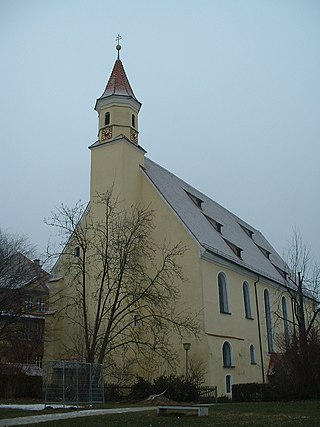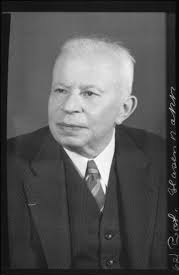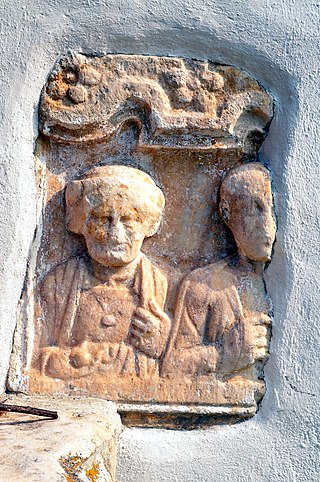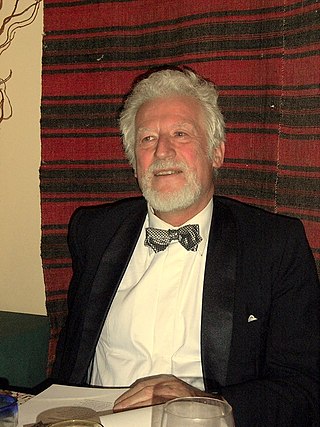Related Research Articles

Helmut Rix was a German linguist and professor of the Sprachwissenschaftliches Seminar of Albert-Ludwigs-Universität, Freiburg, Germany.

Heinrich Frauenlob, sometimes known as Henry of Meissen, was a Middle High German poet, a representative of both the Sangspruchdichtung and Minnesang genres. He was one of the most celebrated poets of the late medieval period, venerated and imitated well into the 15th century.

Louis Kugelmann, or Ludwig Kugelmann, was a German gynecologist, social democratic thinker and activist, and confidant of Marx and Engels.
Traugott Konstantin Oesterreich was a German religious psychologist and philosopher.

Jakob Georg Christian Adler was a Danish-German Generalsuperintendent for Holstein and Schleswig, Orientalist, Syriac language professor at the University of Copenhagen, Lutheran theologian, Oberkonsistorialrat, book writer, religious educator, coin collector and head of the Schleswig-Holsteinische Bibelgesellschaft.
Eduard Heyck was a German cultural historian, editor, writer and poet.

Söflingen Abbey was a nunnery of the Order of Poor Ladies, also known as the Poor Clares, the Poor Clare Sisters, the Clarisse, the Minoresses, or the Second Order of St. Francis. It was situated in the village of Söflingen, now part of Ulm in Baden-Württemberg, Germany. Being the oldest nunnery of this order in Germany, it was also its most important and most affluent.
Christian Peter "Alphons" Maria Joseph Bellesheim was a church historian. He also reviewed and collected books.

Rudolf Simek is an Austrian philologist and religious studies scholar who is Professor and Chair of Ancient German and Nordic Studies at the University of Bonn. Simek specializes in Germanic studies, and is the author of several notable works on Germanic religion and mythology, Germanic peoples, Vikings, Old Norse literature, and the culture of Medieval Europe.
Hellmut Diwald was a German historian and Professor of Medieval and Modern History at the University of Erlangen-Nuremberg from 1965 to 1985.
Dietmar Otto Ernst Rothermund was a German historian and professor of the history of South Asia at the Ruprecht-Karls University in Heidelberg. He is considered an important representative of modern German historical scholarship. Although he began his academic career as an Americanist, he eventually became a notable figure in the German historiography of South Asia. He helped to lay the foundations for South Asian Studies in Germany and Europe.

Otto Max Helmuth von Glasenapp was a German indologist and religious scholar who taught as a professor at the University of Konigsberg in East Prussia (1928–1944) and Tübingen (1946–1959).

The position of ancient Celtic women in their society cannot be determined with certainty due to the quality of the sources. On the one hand, great female Celts are known from mythology and history; on the other hand, their real status in the male-dominated Celtic tribal society was socially and legally constrained. Yet Celtic women were somewhat better placed in inheritance and marriage law than their Greek and Roman contemporaries.

Norbert Finzsch as Norbert Rollewitz is a German historian.

Franconia Day or Tag der Franken was created in 2006 following a decision by the Bavarian Landtag and has been celebrated annually since then on 2 July or on the weekend immediately following. It is intended to highlight the diverse landscape and history of the Franconian region and to raise awareness of Franconia's potential for development and innovation. The central festive event is held alternately in and by the three Franconian provinces in Bavaria - Upper Franconia, Middle Franconia and Lower Franconia - and has the character of a state festival day.
Steve Pasek is a German Egyptologist, Demotist, Historian and Classicist.

Helmut Birkhan is an Austrian philologist who is Professor Emeritus of Ancient German Language and Literature and the former Managing Director of the Institute for Germanic Studies at the University of Vienna.

Klaus von See was a German philologist who specialized in Germanic studies.
Georg Ulrich Großmann is a German art historian. He was general director of the Germanisches Nationalmuseum in Nuremberg.
Bankhaus Adolph Meyer was a private bank, and the oldest in Hanover, Germany. It played a prominent role in the industrialization of Lower Saxony, particularly in the cotton and coal and steel industries, especially since the time of the Kingdom of Hanover. During the Nazi era, it was "Aryanized". It is now located on Schillerstraße at the corner of Rosenstraße in Hannover's Mitte district.
References
- ↑ "Abteilung für Religionswissenschaft - Forschung". www.uni-tuebingen.de. Archived from the original on 20 October 2013. Retrieved 6 June 2022.